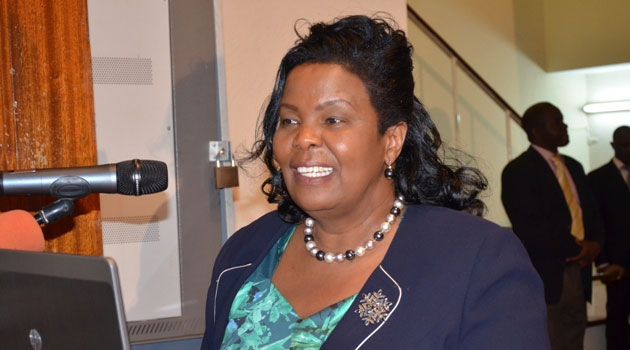 |
| Photo by RF._.studio on Pexels |
by Adetayo Adetokun
The International Day of Women and Girls in Science celebrated on February 11 each year, is an opportunity to acknowledge and celebrate the critical role women and girls play in scientific fields and promote their full and equal access to, and participation in, science. While there has been some progress in recent years, the representation of women and girls in Science, Technology, Engineering, and Mathematics (STEM) remains disproportionately low. According to the United Nations Educational, Scientific and Cultural Organization (UNESCO) Science Report 2021, one in three researchers in science globally is a woman. In sub-Saharan Africa, between a mere 18 to 31 percent of science researchers are women, compared to 49 percent in Southeast Europe and the Caribbean; 44 percent in Central Asia and Latin America; and 37 percent in the Middle Eastern States.
That said, Africa is home to many dynamic and innovative women in STEM who are making significant contributions to their countries and the continent as a whole. Despite this, the stories of these women often go untold. From developing cutting-edge technologies to improving healthcare delivery, these women are proving that STEM can be a vehicle for empowerment and positive change.
We believe that women are so much more and belong (and should thrive) in all spaces. This is why today, we are celebrating the achievements of women in STEM in Africa. This is a call to advocate for their continued advancement to ensure girls are empowered to consider careers in these fields.
Here are some African women who have made a significant impact in STEM and serve as an inspiration for the next generation of female STEM leaders.
Dr. Olive Mugenda - Kenya: A renowned academic and researcher in the field of education, Dr. Mugenda has made significant contributions to improving education systems and outcomes in Kenya and across Africa. She has served as Vice-Chancellor of Kenyatta University and is a former member of the Kenya National Examination Council. Dr. Mugenda's research focuses on the role of education in national development and the impact of educational policies on access and equity. She is a respected voice in the education sector and has been recognized for her contributions to education in Kenya and beyond.

Credit: Capital News
Funke Opeke - Nigeria: Funke Opeke is a Nigerian Engineer and the Chief Executive Officer of MainOne, a leading telecommunications and data center solutions provider in West Africa. She has more than two decades of experience in the telecommunications industry and has been recognized for her leadership and contribution to the growth of the sector in Africa.
 |
| Credit: Techpoint |
Njideka Harry - Nigeria: Njideka Harry is a Nigerian Computer Scientist and Data Analyst, and the co-founder of Andela, a company that trains and employs top African software developers. Harry's mission is to help close the digital skills gap in Africa by providing high-quality education and job opportunities for young African tech talent.
 |
| Credit: Ventures Africa |
Ndidi Nwuneli - Nigeria: Ndidi Nwuneli is a Nigerian Agribusiness and Social entrepreneur, and the co-founder of LEAP (Leadership, Effectiveness, Accountability & Professionalism) Africa, an organization that provides leadership development and entrepreneurship training in Africa.
 |
| Credit: TechHer |
Dr. Yewande Sadiku - Nigeria: An electrical engineer and researcher, Dr. Sadiku is working to improve energy access and security in Africa through the development of smart grid technologies. She is a professor of electrical and computer engineering at the University of Lagos and has received several awards for her contributions to the field of electrical engineering. Dr. Sadiku's research focuses on the development of advanced electrical grid technologies and the integration of renewable energy sources into the grid. She is a strong advocate for the use of technology to address Africa's energy challenges and is dedicated to creating a more sustainable energy future for the continent.
| Credit: Premium Times |
Dr. Ola Brown - Nigeria: She is a medical doctor, entrepreneur, and founder of Flying Doctors Nigeria, a healthcare and air ambulance service. She established the company in 2008 intending to provide medical services to people in remote and underserved areas of Nigeria and Africa. Brown's passion for helping people in need and her desire to address the shortage of healthcare services in rural areas led her to establish Flying Doctors Nigeria. The company offers a wide range of medical services, including air ambulance services, medical evacuation, and telemedicine services. It has become one of the leading providers of air ambulance services in Nigeria and has served thousands of patients in remote and underserved areas.
 |
| Credit: Nairametrics |
Over the years, there have been several initiatives that are aimed at celebrating and advocating for women in STEM in Africa. They include :
African Women in Science and Engineering Network: This organization is dedicated to promoting and supporting the advancement of women in STEM in Africa. It provides mentorship and networking opportunities for women in STEM, as well as advocates for policies that promote gender equality in STEM.
African Girls Can Code (AGCC): This is a nonprofit organization that aims to empower African girls and young women through coding and technology education. The organization provides access to technology education, mentorship, and resources to help girls and young women develop the skills and confidence they need to pursue careers in STEM.
STEM Center Africa: This organization is dedicated to promoting STEM education in Africa and providing access to resources and opportunities for girls and young women in STEM. It offers mentorship, networking, and training opportunities to help girls and young women build the skills and knowledge they need to succeed in a STEM field.
STEMing Africa Initiative: This organization provides access to education and resources for girls from low-income backgrounds who are interested in pursuing careers in STEM. It offers mentorship, training, and resources to help girls develop the skills and knowledge they need to succeed in STEM fields.
Merck Foundation STEM Program: This initiative aims to provide access to education and resources for girls from rural areas in Africa who are interested in pursuing careers in STEM. It offers mentorship, training, and resources to help girls from rural areas build the skills and knowledge they need to succeed in STEM fields.
Challenges Facing Women in STEM in Africa
Despite the achievements of women in STEM in Africa, they continue to face significant challenges, including unequal pay, limited access to resources and opportunities, and persistent cultural biases that limit their advancement in these fields. These challenges, combined with the overall underrepresentation of women in STEM, have created a significant talent gap that threatens the long-term development of these fields in Africa.
Here are some steps that can be taken to promote gender equality in STEM fields:
Encourage girls to pursue STEM subjects from an early age: By providing resources, role models, and exposure to STEM subjects and careers, young girls can develop an interest in these fields. This can be done through initiatives such as STEM camps, workshops, and outreach programs aimed at girls.
Address unconscious bias: Unconscious bias can lead to discrimination and perpetuate the underrepresentation of women in STEM fields. Companies and organizations can train their employees to recognize and overcome their biases. This can be done through workshops, training sessions, and regular diversity and inclusion initiatives.
Foster a culture of inclusion: Creating a workplace culture that is supportive, inclusive, and free from discrimination can help retain and attract female STEM professionals. This can be achieved through initiatives such as employee resource groups, mentorship programs, and open communication channels that encourage diversity and inclusiveness.
Provide flexible work arrangements: Women often face challenges balancing work and family responsibilities. Providing flexible work arrangements, such as remote work options, part-time schedules, and flexible hours can help them better manage these responsibilities and stay in the field.
Promote diversity in hiring and promotions: Ensuring that the selection process for hiring and promotions is fair and objective, and promoting diversity and gender balance, can help address the underrepresentation of women in STEM fields. This can be achieved through the use of blind resume screening, diverse interview panels, and regular diversity and inclusion training for HR teams and managers.
Offer mentorship and sponsorship programs: Providing female STEM professionals with access to mentors and sponsors can help them advance their careers and overcome obstacles they may face. Mentorship programs can provide women with guidance, advice, and support, while sponsorship programs can provide them with opportunities for career advancement and professional growth.
Support work-life balance: Offering support for work-life balance, such as on-site child care or paid family leave, can help retain and attract female STEM professionals. This can be achieved through employee benefits programs, flexible work arrangements, and initiatives that support work-life balance.
Provide equal pay and opportunities for career advancement: Ensuring that women in STEM fields receive equal pay for equal work and have equal opportunities for career advancement is essential for promoting gender equality. This can be achieved through regular pay equity audits, transparent performance evaluations, and clear career progression pathways for all employees.
Celebrate and showcase female STEM professionals: Highlighting the achievements and contributions of female STEM professionals can help to break down gender stereotypes and encourage more girls and women to pursue careers in STEM. This can be achieved through initiatives such as employee spotlight programs, diversity and inclusion events, and social media campaigns.
In conclusion, the International Day of Women and Girls in Science provides a unique opportunity to celebrate and advocate for women in STEM in Africa. It is also a call to action to empower girls and young women to pursue careers in these fields, breaking down the barriers that limit their participation and promoting gender equality in STEM. By doing so, we can help to build a brighter future for Africa and the world.
No comments:
Post a Comment